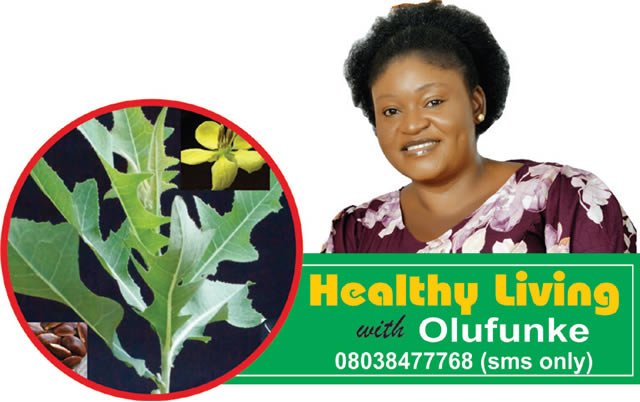
I was on Facebook last weekend and I stumbled on a page called Eat Right Nigeria. That name caught my eyes and I decided to start following the page. I was lucky to see the number of the CEO there and I chatted him up. His name is Michael S. Kayode, a registered dietitian nutritionist. He told me that Eat Right Nigeria is an indigenous nutritional company that is on a mission to inspire and empower people to live healthy lives every day. He said their mission is to find the most trustworthy science and practical knowledge about nutrition, make it inspiring, simple to use, accessible and near-free for everyone. They focus on making nutritional therapy appealing and acceptable to people who could benefit and who want to try. Their long-term purpose is empowering people everywhere to revolutionise their health via healthier lifestyles. They also do nutrition consultation, meal planning and cooperate health talk. I have always talked about eating right on this platform, so this kind of innovation makes me happy because a lot of people will be encouraged.
Some readers have complained that the inclusion of scientific studies make these articles too academic. I have no powers to scrape that part. Besides, these peer-reviewed studies are what give credibility to everything here, otherwise, these articles will just turn to folklores told to children under the moonlight. I try to simplify them but at the same time, I must be careful not to water down the messages.
When I was young, pumpkin fruit was boiled and later cooked in pepper stew to eat boiled yam in our home but the seeds were thrown away. I feel like travelling back in time right now to pick all those seeds because those were powerhouses of nutrients that were wasted. The last time I bought pumpkin seeds, it was 200g for N2, 900. So, anytime I am able to get pumpkin fruits, trust me, no single seed will be wasted. This week, I present to you pumpkin seeds.
Pumpkin seeds are edible seeds of pumpkin fruit. They are a common ingredient in Mexican cuisine and are also roasted and served as a snack. Marinated and roasted, they are an autumn seasonal snack in the United States as well as a commercially produced and distributed packaged snack like sunflower seeds. They may be tiny but they are densely packed with useful nutrients and nutraceuticals such as amino acids, phenolic compounds, tocopherols, cucurbitacins and valuable minerals. All these bioactive compounds are important to a healthy life and well-being and they exhibit promising activities such as anthelmintic, antidiabetic, antidepressant, antioxidant, antitumour and cytoprotective. They are rich in protein, fibres, minerals, like iron, zinc, calcium, magnesium, manganese, copper, sodium, polyunsaturated fatty acids, phytosterol and vitamins.
Health-promoting impacts of pumpkin seeds on the level of blood glucose, cholesterol, immunity, liver function, gall bladder, prostate gland, inflammation, cancer management and inhibition of parasites are established. They are a powerhouse of fertility food. They contain high amounts of zinc, which is a key mineral for sperm production and function and they also help support healthy testosterone levels. Do not forget that when I discussed female infertility, I talked about seed cycling and pumpkin seed is among.
Pumpkin seeds were once used as an anthelmintic in traditional medicine in China to expel tapeworms. This led to the seeds being listed in the United States Pharmacopoeia as an anti-parasitic from 1863 until 1936. They are rich in Tryptophan, an amino acid that gets converted to serotonin in the body and this improves quality of your sleep. They help in controlling blood sugar. They are good for cardiovascular health. They have anti-inflammatory properties, which help in reducing arthritic pain. They boost immunity. They promote weight loss. Magnesium in pumpkin seeds helps to reduce stress and anxiety. They improve hair growth.
They contain antioxidants, which can reduce inflammation and protect your cells from free radicals. They are a great source of dietary fibre and are one of the best natural sources of magnesium. Pumpkin seed oil is high in unsaturated fatty acids and plant sterols, which have numerous cardiovascular benefits. Pumpkin seeds, pumpkin seed extracts and pumpkin seed oil have long been valued for their anti-microbial benefits, including their anti-fungal and anti-viral properties. They also contain important phytoestrogen compounds that have estrogenic-like effect and prevents hyperlipidemia and osteoporosis in menopausal women. Phytoestrogens in pumpkin seeds also could be related to a reduced hormone-dependent tumour. They have been linked to a reduced risk of certain cancers. In fact, one study found that diets rich in pumpkin seeds were found to be associated with reduced risk of stomach, breast, lung, prostate and colon cancers.
In one study, pumpkin seed oil reduced inflammation in rats with arthritis without side effects, whereas animals given an anti-inflammatory drug experienced adverse effects. A large observational study found that eating them was associated with a reduced risk of breast cancer in postmenopausal women. In a one-year study in over 1,400 men with benign prostatic hyperplasia, pumpkin seed consumption reduced symptoms and improved quality of life. One study in 45 men and women with overactive bladders found that 10 grammes of pumpkin seed extract daily improved urinary system function. Some studies show that the lignans in pumpkin seeds may play a key role in preventing and treating breast cancer. Test-tube studies found that a supplement containing pumpkin seeds had the potential to slow down the growth of prostate cancer cells.
Scientific studies
- A study titled, “Nutritional and Therapeutic Importance of the Pumpkin Seeds” by Syed et al, confirmed that pumpkin seeds have nutritional and therapeutic properties and also serve as a delicious food in many regions of the globe.
- Cancer treatment with cyclophosphamide may result in reproductive toxicity as one of its side effects. So, in a study titled, “Protective effect of pumpkin seed extract on sperm characteristics, biochemical parameters and epididymal histology in adult male rats treated with cyclophosphamide,”
by Aghaei et al, male adult Wistar rats were categorised into four groups. Group 1 served as control; Group 2 rats were treated with CP. Group 3 and 4 received CP plus 300 and 600 mg/kg pumpkin seed extract respectively. Six weeks after treatment, sperm characteristics, biochemical parameters and histopathological changes were examined. Results showed that sperm characteristics in CP-treated rats were significantly decreased but were increased in the groups that were treated with CP and pumpkin seeds. The findings indicated that pumpkin seed extract might be used as protective agent against CP-induced reproductive toxicity.
- In a study titled, “Effect of pumpkin seed oil on cholesterol fractions and systolic/diastolic blood pressure,” by Majid et al, results of the experiments revealed that pumpkin seed oil has hypolipidemic and anti-hypertensive activity.
Those sold in grocery stores are typically shelled. If you cut a pumpkin fruit yourself, you do not need to remove the shells from the seeds before roasting; the shells are safe to eat. In fact, they add to the seeds’ distinctive crunch and provide more nutrients. They can be roasted. You can add them to smoothies and yogurt. You can incorporate them into salads and cereals. Some people use pumpkin seeds in baking.
Copyright PUNCH.
All rights reserved. This material, and other digital content on this website, may not be reproduced, published, broadcast, rewritten or redistributed in whole or in part without prior express written permission from PUNCH.
Contact: [email protected]





